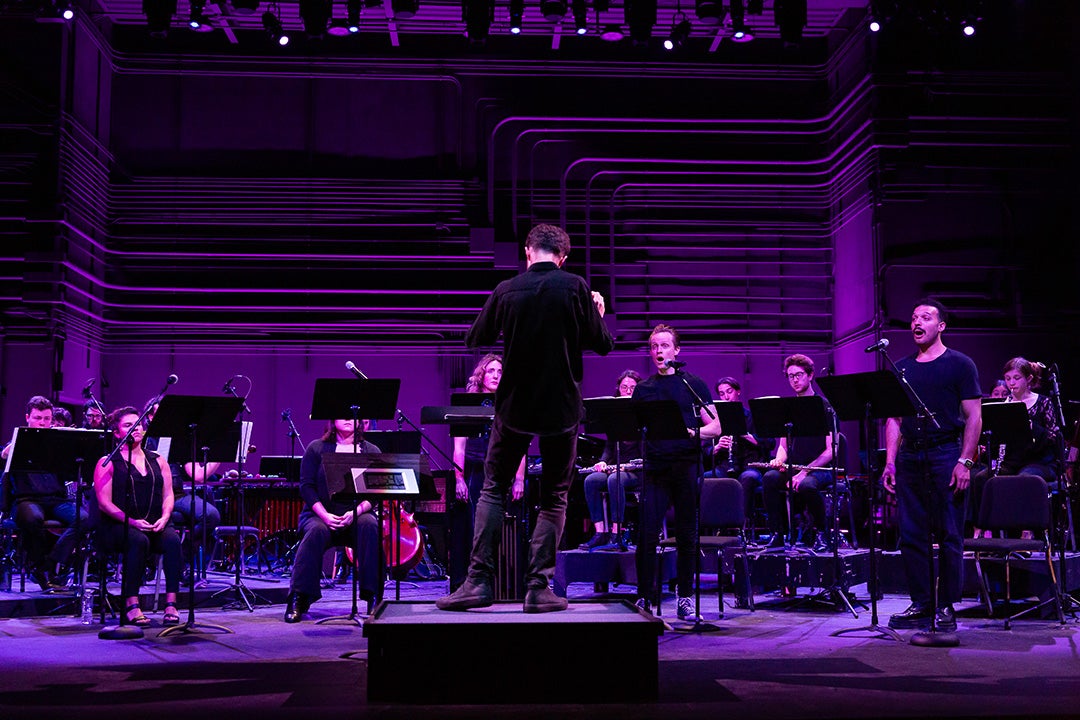Lauded by the New York Times for “the ferocity of the music” and “the layered depths of the text,” “Music for New Bodies” made its world premiere at the Shepherd School of Music at Rice University April 20. The piece is a groundbreaking collaboration between acclaimed composer-conductor Matthew Aucoin and legendary director Peter Sellars.
The genesis of the project can be traced back to a meeting between DACAMERA artistic director Sarah Rothenberg, Aucoin and Shepherd School Dean Matthew Loden. Recognizing a unique alignment of talents and vision, they embarked on a journey to bring the creative vision to life at the Shepherd School.
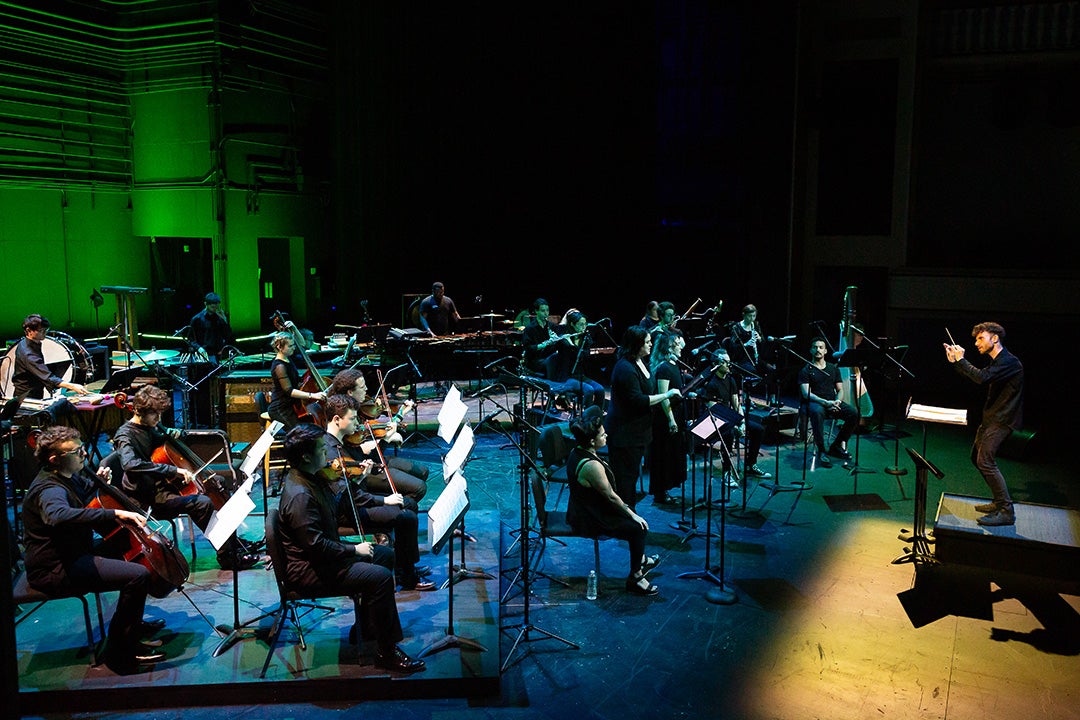
“Every year we have a number of world premieres at the Shepherd School, and we’re really very proud of that fact,” Loden said. “This one in particular is special.”
He added that what made it special was the group that co-commissioned the work: Shepherd School, DACAMERA, the American Modern Opera Company, the Los Angeles Opera and Aspen Music Festival and School.
“As a faculty member of Rice University, I love that it’s taking place here,” said Ana María Martínez, professor of voice at the Shepherd School. “To have these brilliant minds that are creating this project also include some of our most distinguished alumni that have come through the Shepherd School of Music is very exciting too.”
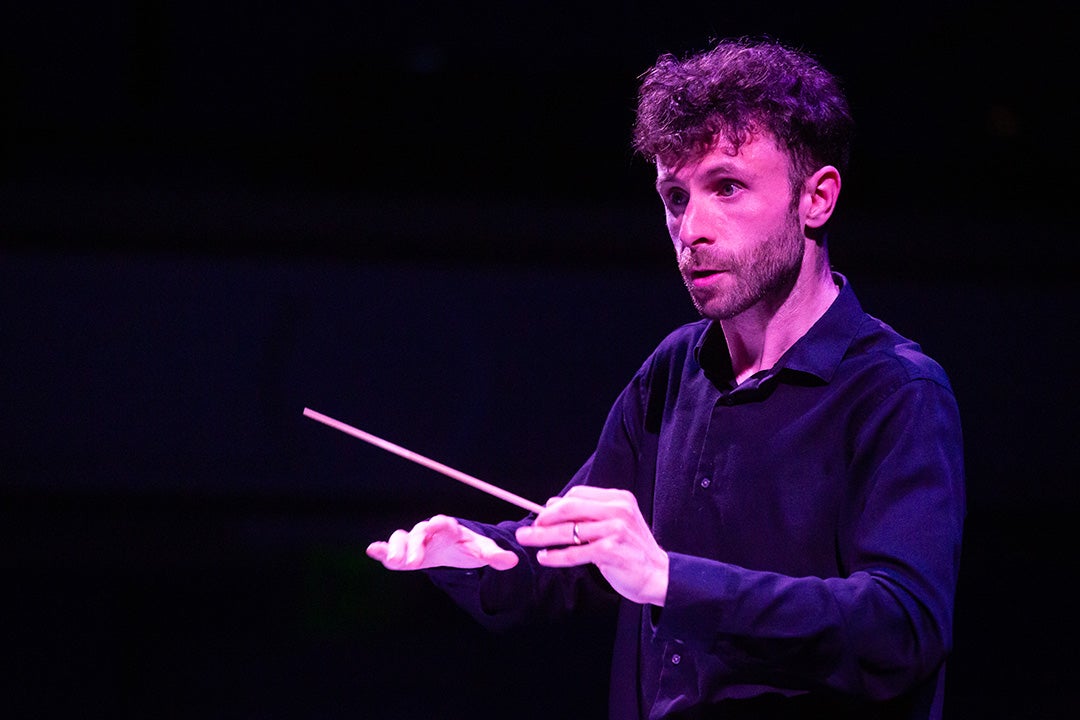
Along with an 18-instrument ensemble of Shepherd School students and DACAMERA Young Artists, Aucoin conducted five vocal soloists, including tenor Brenton Ryan, who received a Master of Music from the Shepherd School in 2011, and Cory McGee, bass-baritone and 2020 Shepherd School graduate. Sopranos Kathryn Lewek and Meryl Dominguez and mezzo-soprano Rachael Wilson also performed.
At the heart of “Music for New Bodies” lies a poignant exploration of humanity’s relationship with the world around us. The poetry of Jorie Graham is central to the opera’s narrative, providing evocative verses as the lyrical backdrop of the piece.
“This piece is a 360-degree portrait of the moment we’re living in,” Aucoin said. “We start from the perspective of a woman who seems to be dealing with some intense, invasive medical treatments. But we quickly move from just her consciousness to the consciousness of the planet. We hear voices from the bottom of the ocean. We hear the voices of chemicals that are coursing through her body. We hear voices that may be not human, that may be generated by AI. So it’s really this kind of kaleidoscopic musical image of the moment we’re living in.”
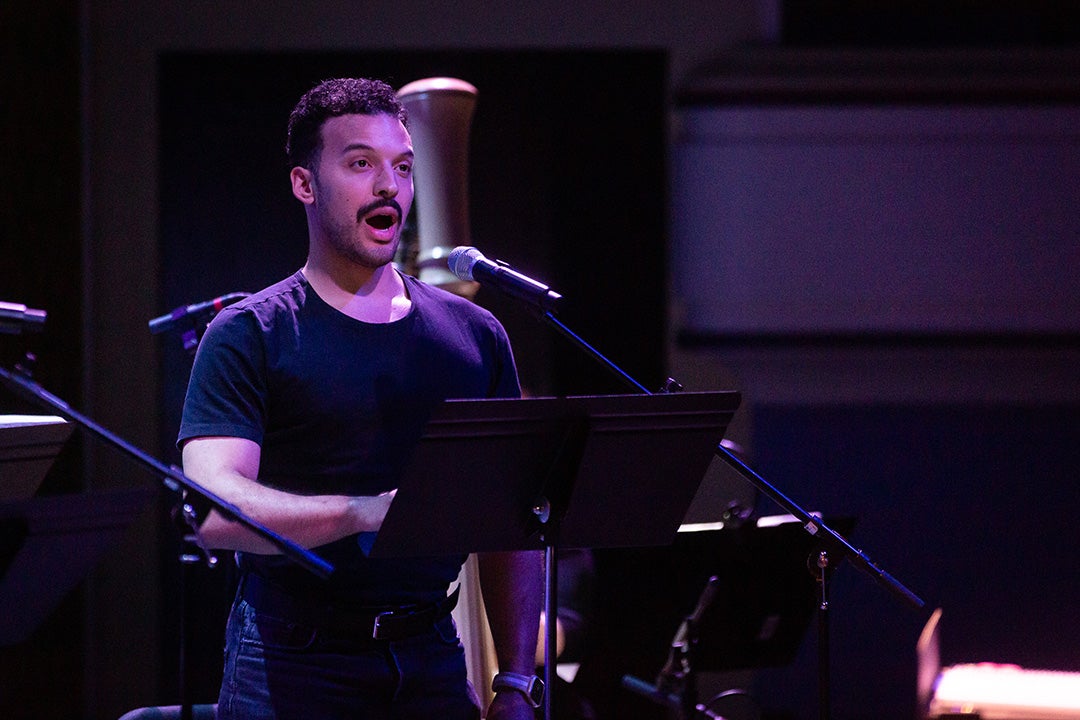
For Sellars, “Music for New Bodies” represents a new chapter in the evolution of opera, pushing the boundaries of theatrical expression.
“It’s what opera could be,” Sellars said.
The premiere of “Music for New Bodies” at the Shepherd School signifies a celebration of artistic innovation and serves as a testament to the program’s commitment to fostering creativity and exploration.
“The fact that a world premiere with this subject matter is taking place at all is very, very important,” Martínez said. “Rice is internationally known for its leadership in research and entrepreneurial studies, and Houston is a city of innovation. In addition to that, to remain relevant in the classical music scene, new works need to be created and performed on a regular basis. They also need to circle around the themes that concern us as a humanity in addition to the different movements that are taking place that have begun in the last few years.”
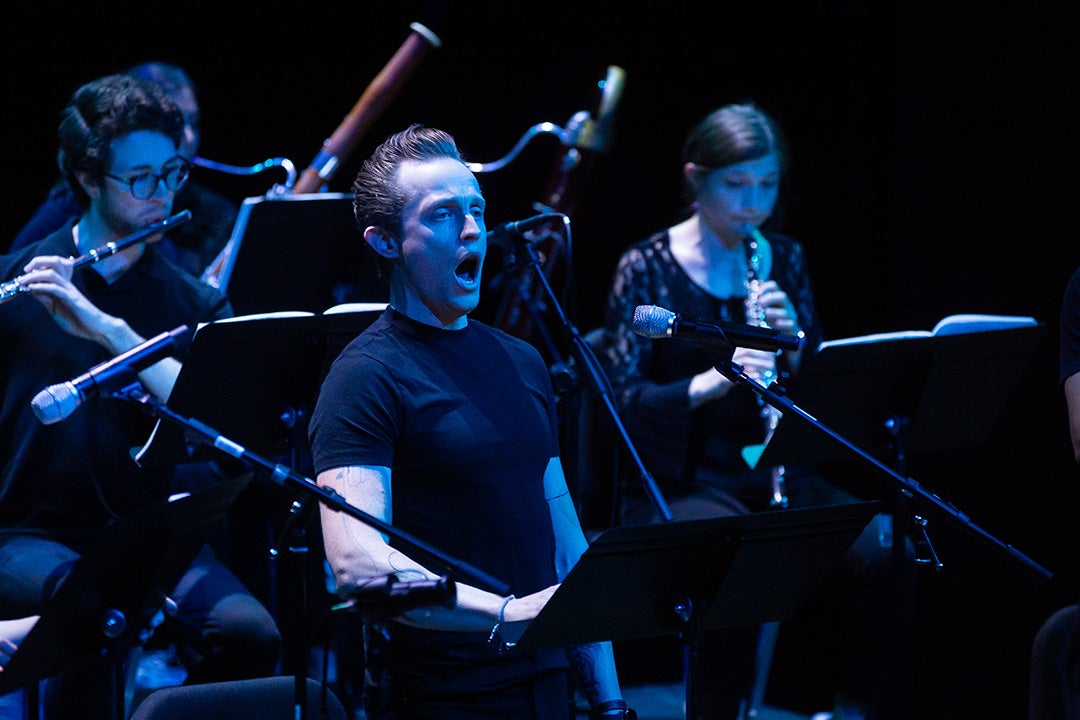
Loden says the true essence of artistic excellence lies not entirely in accolades or recognition but also in the daily pursuit of innovation and creativity.
“The way our faculty who are here work with our students every single day, there’s something that’s innovative, creative, different, unique and special,” Loden said. “We get a little bit more hype around when some of the famous outsiders come into our orbit, which is wonderful, but what happens day in and day out at a place like the Shepherd School is what really makes a difference.”
Learn more about the Shepherd School here.
